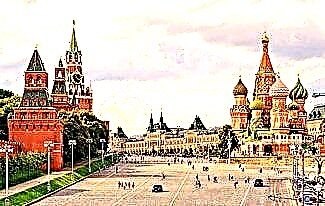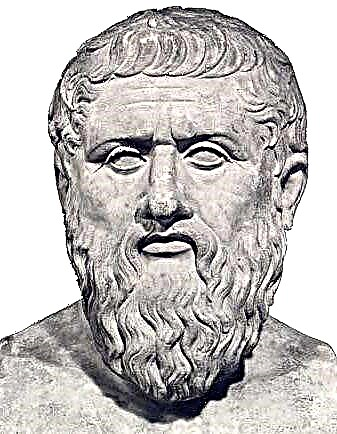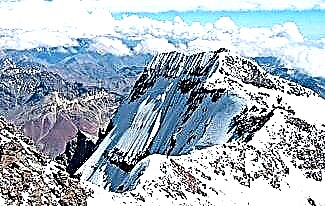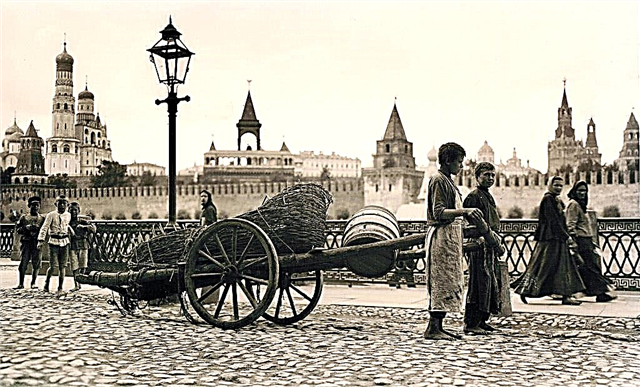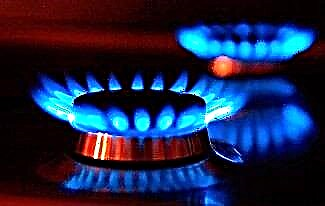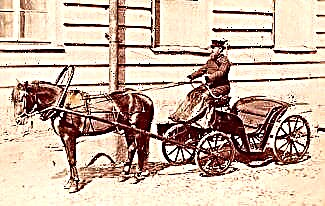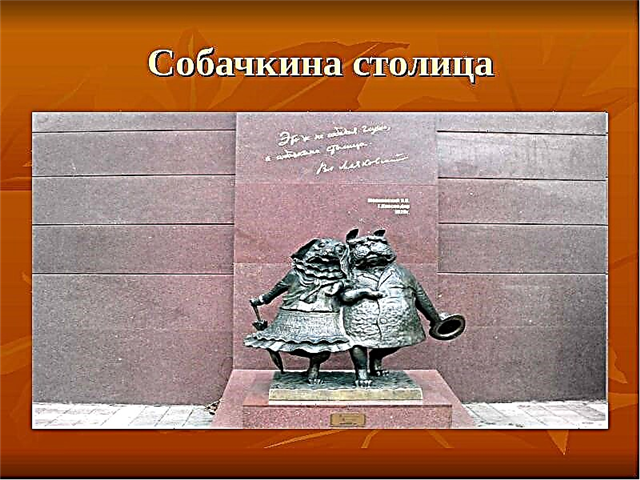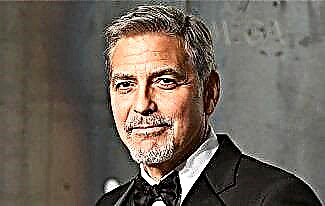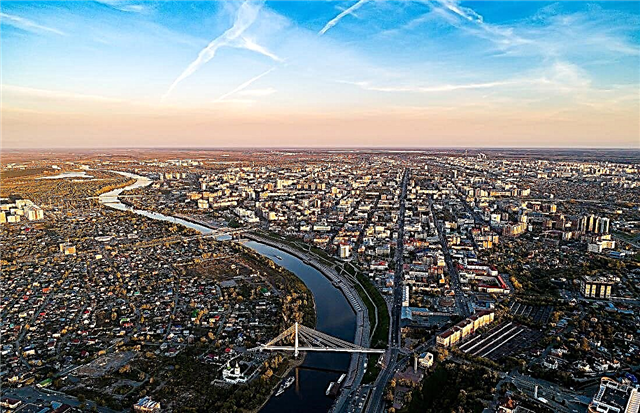Hugo Rafael Chavez Frias (1954-2013) - Venezuelan revolutionary, statesman and politician, President of Venezuela (1999-2013), chairman of the Movement for the Fifth Republic, and then the United Socialist Party of Venezuela, which, along with several political parties, joined the Movement ".

There are many interesting facts in the biography of Hugo Chavez, which we will talk about in this article.
So, before you is a short biography of Chavez.
Biography of Hugo Chavez
Hugo Chavez Frias was born on July 28, 1954 in the village of Sabaneta (state of Barinas). His parents, Hugo de los Reyes and Helene Friaz, taught at a rural school. In the Chavez family, he was the second of 7 children.
Childhood and youth
According to Hugo's recollections, although his childhood was poor, it was happy. He spent his early years in the village of Los Rastrojos. At this time in his biography, he dreamed of becoming a famous baseball player.
After receiving primary education, his parents sent him along with his brother to his grandmother in Sabaneta, for admission to the lyceum.

It is worth noting that my grandmother was a deeply religious Catholic. This led to the fact that Hugo Chavez began to serve in a local temple. After graduating from the lyceum, he became a student at the military academy. Here he continued to play baseball and softball (a form of baseball).
An interesting fact is that Chavez even played in the Venezuelan baseball championship. Hugo was seriously carried away by the ideas of the famous South African revolutionary Bolivar. By the way, the state of Bolivia got its name in honor of this revolutionary.
Ernesto Che Guevara also made a great impression on the guy. It was during his studies at the academy that Hugo turned his serious attention to the poverty of the working class in Venezuela. He firmly decided that he would do everything possible to help his compatriots improve their lives.
At the age of 20, Chávez attended an event celebrating the Battle of Ayacucho, which took place during the Peruvian War of Independence. Among other guests, President of the country Juan Velasco Alvarado spoke from the rostrum.
The politician declared the need for military action to eliminate the corruption of the ruling elite. Alvarado's speech greatly inspired young Hugo Chavez and was remembered by him for many years.
Over time, the guy met the son of Omar Torrijos, the dictator of Panama. The appeals of Velasco and Torrijos convinced Chavez of the correctness of the removal of the current government through an armed uprising. In 1975, the student graduated with honors from the Academy and joined the army.
Politics
During his service in the anti-partisan detachment in Barinas, Hugo Chavez got acquainted with the works of Karl Marx and Vladimir Lenin, as well as other pro-communist authors. The soldier liked what he read, as a result of which he became even more convinced of his leftist views.
After some time, Chavez realized that not only the secular government, but the entire military elite was completely corrupted. How else can one explain the fact that the funds received from the sale of oil did not reach the poor.

This led to the fact that in 1982, Hugo created the Bolivarian Revolutionary Party-200. Initially, this political force made every effort to educate like-minded people in the country's military history in order to form a new system of warfare.
By the time of the biography, Chavez was already in the rank of captain. For some time he taught at his native academy, where he managed to share his ideas with students. Soon he was sent to another city.
The man had very reasonable suspicions that they simply wanted to get rid of him, since the military leadership began to cause alarm about his activities. As a result, Ugo did not lose his head and began to closely approach the Yaruro and Quiba tribes - the indigenous inhabitants of the lands of the Apure state.
Having made friends with these tribes, Chavez realized that it was necessary to stop the oppression of the aborigines of the state and revise the bills on the protection of the rights of indigenous peoples (which he would later do). In 1986 he was promoted to the rank of major.
A couple of years later, Carlos Andres Perez became president of the country, promising voters to stop following the IMF's monetary policy. However, in reality, Perez began to pursue even worse policies - beneficial to the United States and the IMF.
Soon, Venezuelans took to the streets with protests, criticizing the current government. However, by order of Carlos Perez, all demonstrations were brutally suppressed by the army.

At this time, Hugo Chavez was being treated in a hospital, therefore, when he learned about the atrocities taking place, he realized that an urgent need to organize a military coup.
In the shortest possible time, Chavez, together with like-minded people, developed a plan, according to which it was required to take control of strategically important military facilities and the media, as well as eliminate Peres. The first attempt at a coup d'état, made in 1992, was not crowned with success.
In many ways, the revolution failed due to a small number of revolutionaries, unverified data and other unforeseen circumstances. This led to the fact that Hugo voluntarily surrendered to the authorities and appeared on TV. In his address, he asked his supporters to surrender and come to terms with defeat.
This event was discussed all over the world. After that, Chávez was arrested and put behind bars. However, the incident did not pass by and Peres, who was removed from the presidency for malfeasance and embezzlement of the treasury for personal and criminal purposes. Rafael Caldera became the new president of Venezuela.
Caldera freed Chavez and his associates, but forbade them to serve in the army of the state. Hugo began to convey his ideas to the general public, seeking support abroad. It soon became apparent that the new head of the country was not much different from his predecessors.
The revolutionary was still convinced that it would be possible to take power into his own hands only with the use of weapons. However, initially, he still tried to act by legal means, creating in 1997 the "Movement for the Fifth Republic" (which later became the United Socialist Party of Venezuela).
In the 1998 presidential race, Hugo Chavez was able to bypass Rafael Caldera and other opponents, and take the presidency the following year. During his first term as president, he carried out many important reforms.
Roads, hospitals and office buildings began to be built on Chavez's orders. Venezuelans were entitled to free medical treatment. Laws were passed to protect the indigenous population. An interesting fact is that every week there was a program called "Hello, President", in which any caller could discuss this or that issue with the President, and also ask for help.

The first presidential term was followed by the 2nd, 3rd and even a short 4th. The oligarchs never succeeded in displacing the people's favorite, despite the putsch in 2002 and the referendum in 2004.
Chavez was re-elected for the fourth time in January 2013.However, after 3 months he died, as a result of which Nicolas Maduro, who would later become the official head of Venezuela, began to assume the presidential duties.
Personal life
Ugo's first wife was Nancy Calmenares, who came from a simple family. In this marriage, the couple had a son, Ugo Rafael, and 2 daughters, Rosa Virginia and Maria Gabriela. After the birth of his son, the man broke up with Nancy, continuing to help the children.
During the period of his biography 1984-1993. Chavez cohabited with Erma Marksman - his colleague. In 1997, he married Marisabel Rodriguez, who gave birth to his baby girl, Rosinez. The couple decided to leave in 2004.

The politician loved to read, as well as watch documentaries and feature films. Among his hobbies was learning English. Hugo was a Catholic who saw the roots of his own socialist course in the teachings of Jesus Christ, whom he called "a real communist, anti-imperialist and enemy of the oligarchy."
Chavez often had serious disagreements with the clergy. An interesting fact is that he advised the clergy to read the works of Marx, Lenin and the Bible.
Death
In 2011, Hugo learned that he had cancer. He went to Cuba, where he underwent surgery to remove a malignant tumor. At first, his health was on the mend, but a year later, the disease again made itself felt.
Hugo Chavez died on March 5, 2013 at the age of 58. Maduro stated that cancer was the cause of death, while General Orneli claimed that the president died as a result of a massive heart attack. There were many rumors that in reality Hugo was poisoned by the Americans, who allegedly infected him with the oncovirus. Chavez's body was embalmed and displayed in the Museum of the Revolution.
Photo by Hugo Chavez










